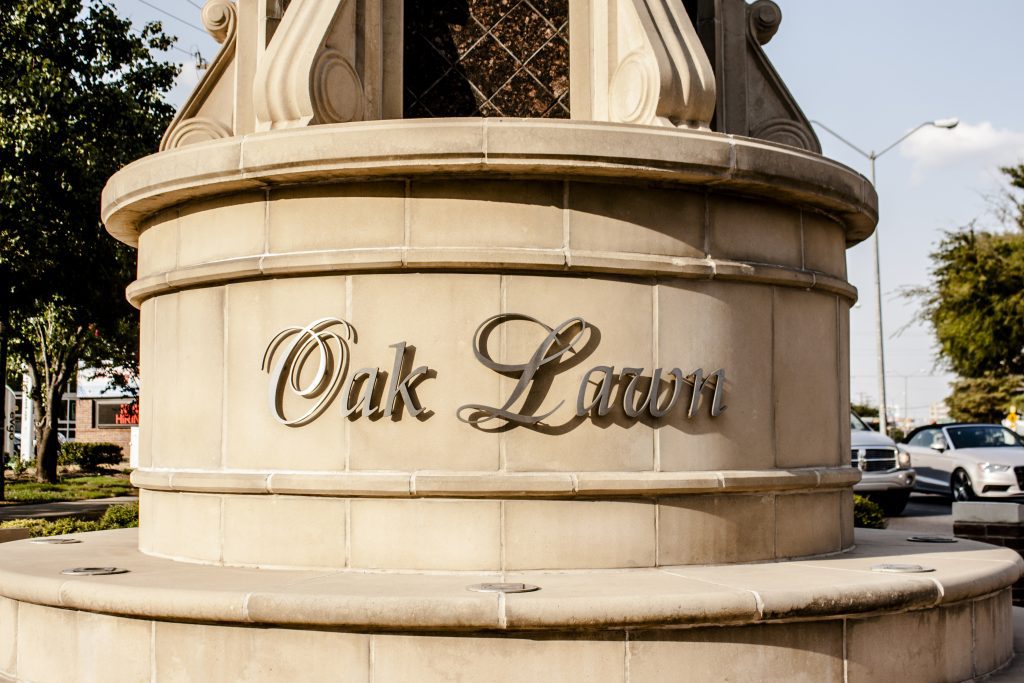City: Dallas
Neighborhood: Knox-Henderson
Company/Title: Weaver, Senior Associate II
When did you move here? Where from?
April 2018 from Melbourne, Australia.
What made you Say Yes to Dallas?
In 2016, I lived and worked in Dallas for a short three months, and obviously liked it enough to move here permanently. During this time, I very quickly got a feel for Texan and Dallas culture and the region’s demographic, which I found very appealing. Texan culture is particularly inclusive – I felt an immediate sense of belonging in Texas like a jigsaw piece falling into its place. Dallas is a booming city with enormous economic growth, job opportunities and a vibrant social scene from sports to music, festivals and dining. I felt and continue to feel that Dallas offers limitless professional and social opportunities in an innovative and exciting landscape, while maintaining its southern salt-of-the-earth charm.
How did you choose where to live in the Dallas Region?
For the most part, I relied on my experience in Dallas during 2016; however, I also heavily researched each area online and reached out to Dallas locals and real estate agents. Deep Ellum, Uptown, Knox-Henderson and everything in between offer very similar living accommodations with slight differences in resident ages and life stages.
Tell us about your city/neighborhood. What do you like best? What makes it different?
At risk of sounding like a broken record – the demographic. I was eager to find a place and space where I would be surrounded by mid-twenty-year-old young professionals already progressing within their careers. Also, I enjoy the proximity to the city, bars, restaurants and the American Airlines Center (AAC) which I frequent. I would be hard pressed to find another city where I am able to live with the same level of comfort and amenities so close to the central business district and surrounded by such a lively social population.
What advice would you give to someone who wants to move here?
Carefully research the different neighborhoods of Dallas and speak to similar-minded locals. Rental prices vary significantly through the seasons and some careful planning can help this work in your favor. Perseverance is critical for those considering moving internationally. Dallas has a relatively small expat community and settling in processes/activities can be difficult at times – but not impossible! That aside, the rewards of moving to Dallas far outweigh the difficulties of the move. Pack your bags and head on over!
What would you miss most about the area if you had to leave?
I would miss having such immediate and convenient access to social opportunities with like-minded and similar-aged people.
Tell us about the work environment here.
At Weaver in Dallas, the work environment is challenging in the best possible way. A genuine care for each employee’s progression, personal and professional lives, and comfort is clear. The Dallas professional scene is competitive and filled with ambitious hard workers. However, Weaver respects each employee’s time and personal commitments and staff are trusted to balance their time appropriately without feeling pressured or exhausted.
Where do you go and what do you do on the weekends or days off?
During the summer I relish any weekend I can have by the pool. Dallas is hot and then it gets hotter. Over the winter I find myself in Deep Ellum, Knox-Henderson, or attending a variety of sports games.
What is your passion, and how does the Dallas Region help fulfill it?
I am passionate about meeting people and growing my social and professional networks. Dallas has infinite opportunities to continue to meet people in comfortable settlings.
Where do you feel most at home in the Dallas Region?
The Rustic or the Katy Trail Ice House. These restaurant/bars are lively, charming, social and casual. They blend a comfortable easy going social atmosphere with the outdoors, Texan culture and music.
How do you interact with your community?
I play on a volleyball league and another alternating sports league, frequent my religious community, regularly volunteer with the friendship circle, attend work-hosted social events and never miss a big sports watch party.
Do you travel often? Is it easier or harder to do here?
This year I have only travelled to Australia. For the most part this is easy (albeit long) as there are direct flights between Dallas and Sydney daily.

